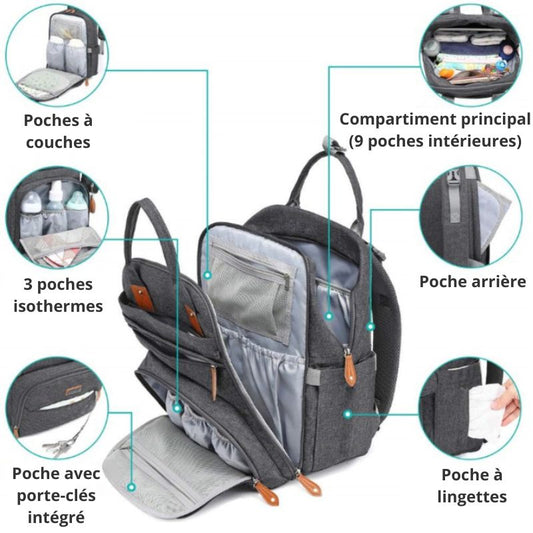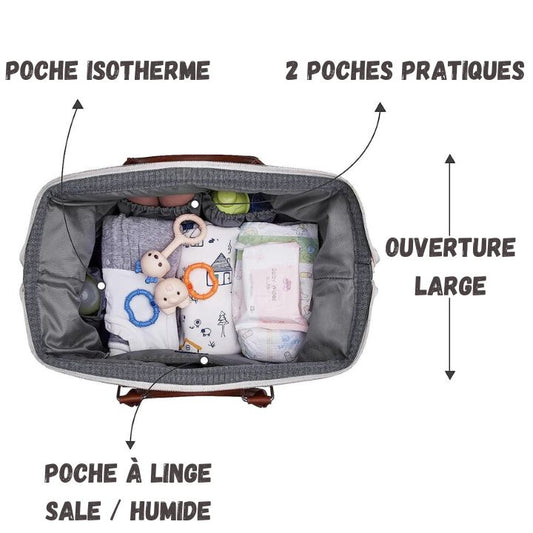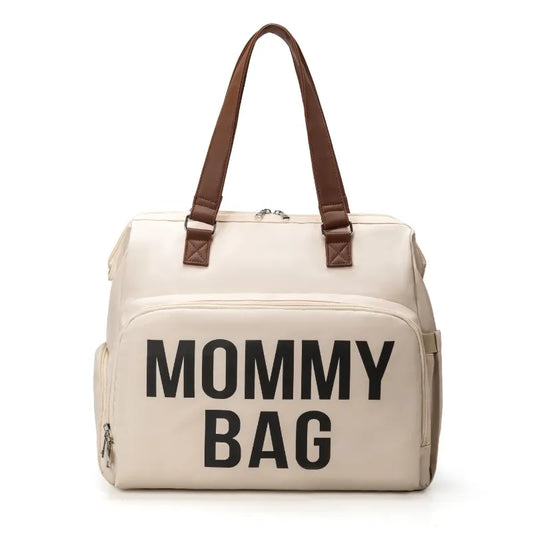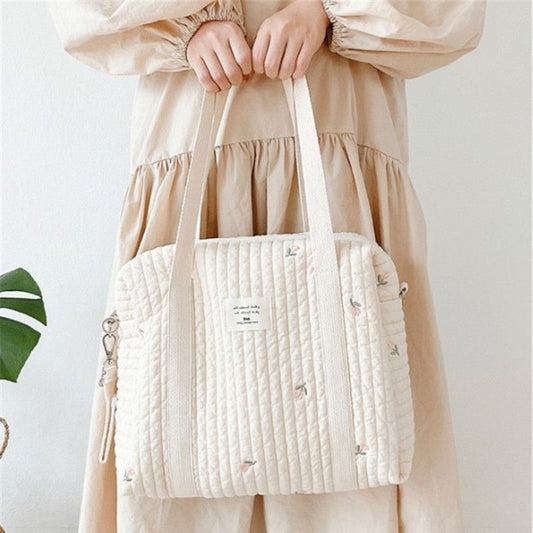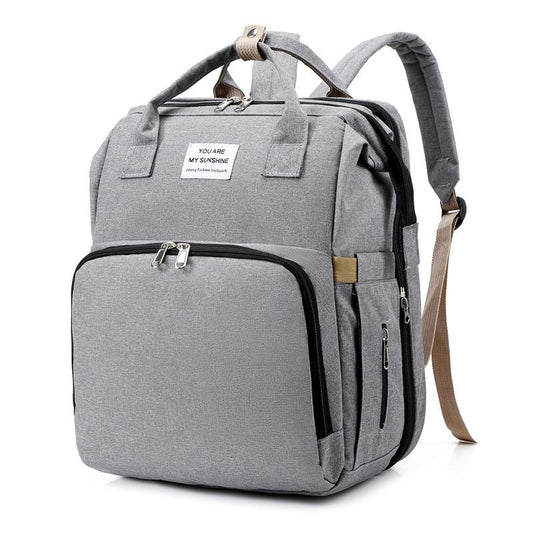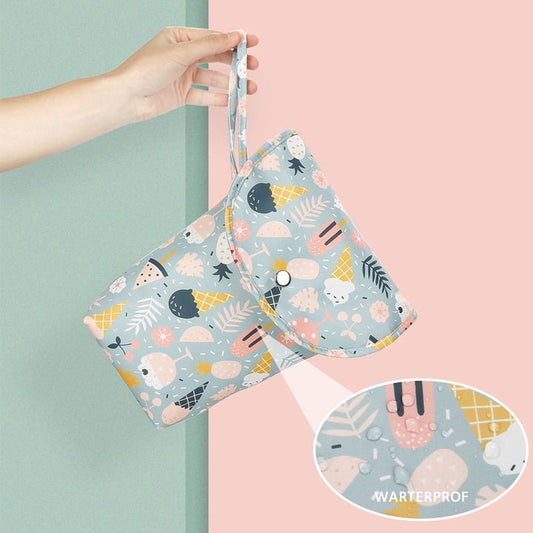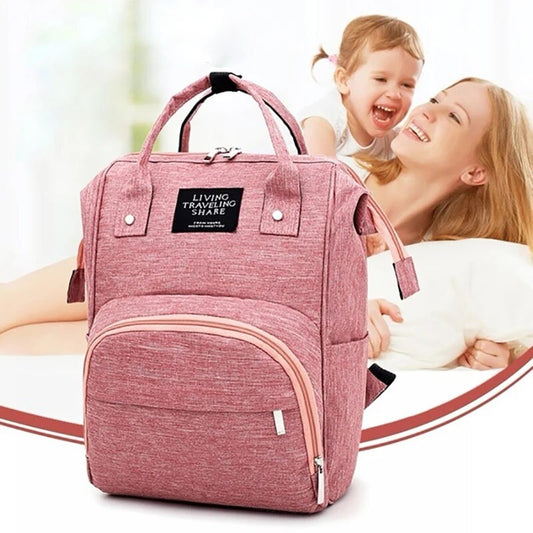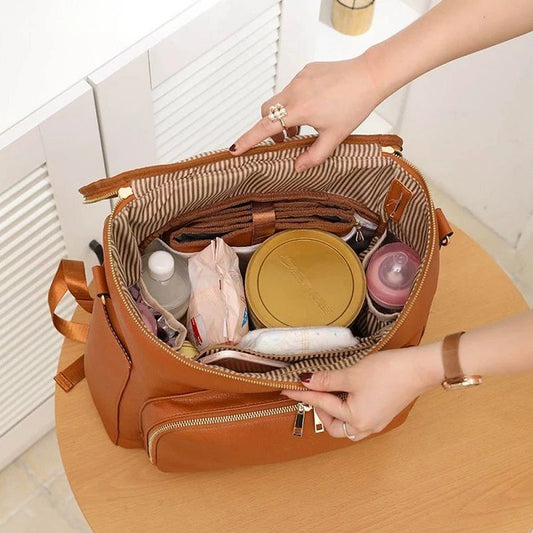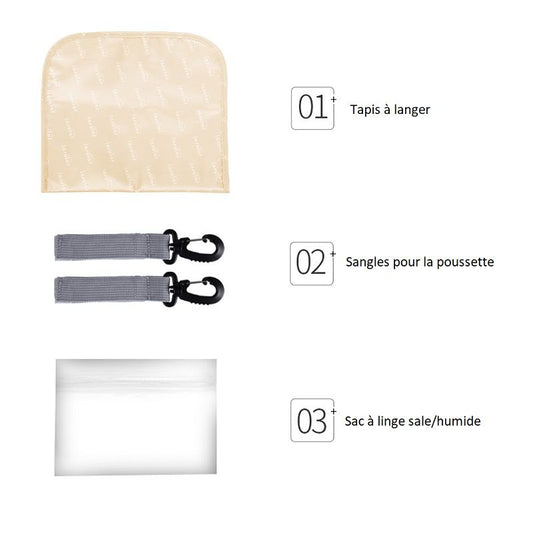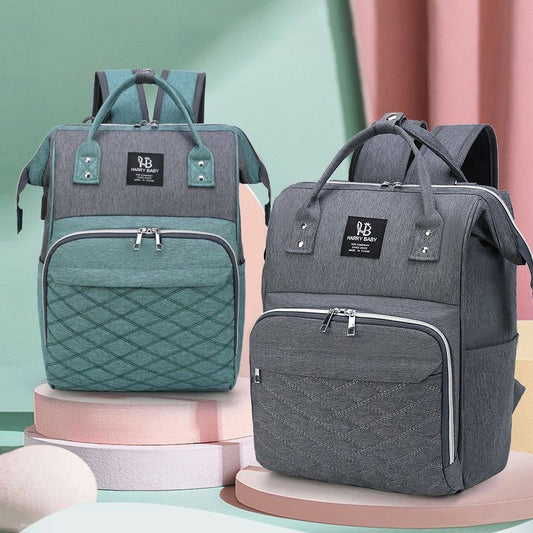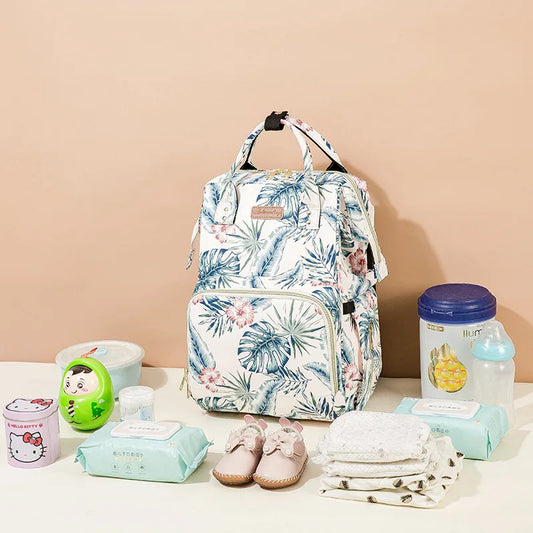Parents want to ensure that they are providing all the essential nutrients for their children's growth and development, whether through homemade or commercial baby foods. There is no "best" option, both have advantages and disadvantages, which generally depend on the individual needs of the parents. This is why it is important, as a parent, to understand their differences to make informed decisions. This article will help make the decision-making process easier!
Discover our angel’s nests
Common Ideas About Baby Foods
Many parents think that:- Homemade baby food is always the best option,
- Commercial baby food is unhealthy,
- Homemade baby food is always more nutritious.
However, many factors determine whether these common beliefs are true or not.
Nutritional Needs of Your Baby
Around 6 months of age, breast milk becomes insufficient to meet all of your child's energy and nutritional needs due to accelerated growth at this stage. Therefore, it becomes very important to start complementary feeding and offer additional nutrients to help in its growth and development. Whether these nutrients come from store-bought products or homemade preparations, what's really important is offering foods that are nutrient-dense (i.e., rich in vitamins, minerals, complex carbohydrates, proteins lean and healthy fats) and in the necessary quantities.
Pros and Cons of Homemade Baby Food
Benefits
- Economical : Can be cheaper.
- Origin : You probably know where it comes from.
- Ingredients : You choose what you add.
- Creativity : You can combine and experiment with different foods, textures, colors and flavors.
Disadvantages and Solutions/Alternatives
- Time-consuming : Preparing your own food (e.g. cutting, steaming, blending) takes extra time in the kitchen.
- Solution: Learn batch cooking/meal preparation techniques to save time and money.
- Shelf life : Spoils more quickly.
- Solution: Learn food storage techniques and refrigeration times to keep homemade foods longer and prevent bacteria growth.
- Safety : Homemade food lacks safety and quality controls.
- Solution: Learn basic kitchen hygiene standards (e.g. wash your hands, avoid cross-contamination, cook animal foods thoroughly).
- Nutrient Loss : Nutrient loss in foods, especially vegetables, is highly dependent on the cooking method.
- Solution: Choose cooking methods that result in less mineral loss (e.g. simmering or blanching) or use kitchen tools like the Olababy steam bowl.
Advantages and Disadvantages of Commercial Baby Food
Benefits
- Time Saver : Ideal for busy parents.
- Creativity : Buying baby food does not prevent you from combining it with other homemade preparations to create interesting and nutritious recipes.
- Longer shelf life : If you do not open the product, it may last longer.
- Regulatory requirements : More stringent.
- Enriched : Contains important added nutrients that support your child's growth and development.
Disadvantages and Solutions/Alternatives
- Cost : May be more expensive.
- Solution: Consider this option when you don't have time to cook or are tired after a busy week of work.
- Contamination : Some packaging can be harmful to the environment and produce unnecessary waste.
- Solution: Buy eco-friendly baby products or recycle/reuse their packaging.
- Heavy metals : Although regulations are strict, some reports have confirmed the presence of heavy metals in some baby products.
- Solution: Offer your child a wide variety of different foods (e.g. grains, fruits, vegetables, animal sources).
- Confusing labels : Sometimes you don't know what to look out for on food labels.
- Solution: Learn to read labels.
In conclusion
- Homemade baby food isn't always the best option.
- Commercial baby food is not always unhealthy.
- Homemade baby food is not always more nutritious.
It always depends on your particular situation and the specific food or preparation you choose. However, if you are still on the fence and trying to decide whether or not to purchase commercial (packaged) food for your baby and family, it might be helpful to evaluate its nutritional content, paying particular attention to:
- The list of ingredients on the label : The first ingredient represents the largest quantity that the products contained during manufacturing, and the last represents the smallest quantity.
- Nutritional information : Look for products containing key nutrients such as iron, zinc, calcium, omega-3, vitamins D, A and C.
- Health Claims : Although many baby products are marketed as "no added sugar," many of them are naturally high in sugar. Just because they don't contain added sugars doesn't mean they're healthy. Banana puree, grape sugar, and apple puree or juice concentrate are also forms of sugar. However, this does not mean that you cannot offer these products to your child. Maybe you just need to be a little more creative and come up with a simple homemade preparation that includes a smaller amount of those store-bought products—then it'll definitely be healthier.
To find out more about baby nutrition and dietary advice, you can consult Santé Publique France .
















